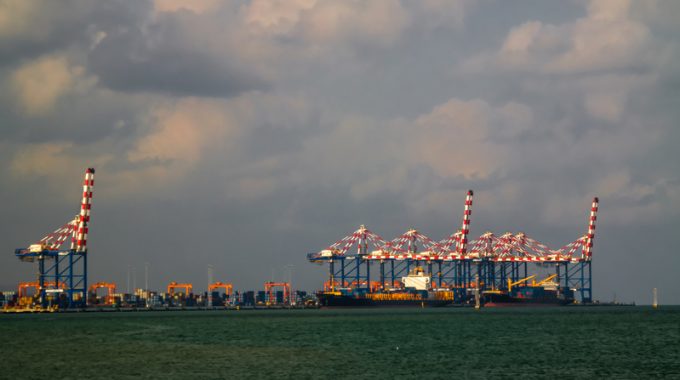US hit by fall in meat exports as China scales back and Brazil steps up
US meat exports are in low gear, affected by bans in the largest market, slowing ...
GM: RAISING THE ROOF GGM: IN FULL THROTTLE GZIM: MAERSK BOOST KNIN: READ-ACROSSMAERSK: NOT ENOUGHMAERSK: GUIDANCE UPGRADEZIM: ROLLERCOASTERCAT: HEAVY DUTYMAERSK: CATCHING UP PG: DESTOCKING PATTERNSPG: HEALTH CHECKWTC: THE FALLGXO: DEFENSIVE FWRD: RALLYING ON TAKEOVER TALKODFL: STEADY YIELDVW: NEW MODEL NEEDEDWTC: TAKING PROFIT
GM: RAISING THE ROOF GGM: IN FULL THROTTLE GZIM: MAERSK BOOST KNIN: READ-ACROSSMAERSK: NOT ENOUGHMAERSK: GUIDANCE UPGRADEZIM: ROLLERCOASTERCAT: HEAVY DUTYMAERSK: CATCHING UP PG: DESTOCKING PATTERNSPG: HEALTH CHECKWTC: THE FALLGXO: DEFENSIVE FWRD: RALLYING ON TAKEOVER TALKODFL: STEADY YIELDVW: NEW MODEL NEEDEDWTC: TAKING PROFIT

UK-based cold chain operator Seafast Logistics is in talks to open a frozen cross-dock facility in Djibouti to service an expected surge in Ethiopian beef exports.
Home to more than 100m cattle, goats and sheep, Ethiopia sees agricultural development as a spearhead of economic growth and is looking for ways to export increasing quantities of beef.
The Bill & Melinda Gates Foundation forecasts that efforts to boost meat production in the country will result in a 58% bump by 2020 – although it also notes this will still not meet domestic levels of consumption.
Having “stumbled on the burgeoning industry by chance” two months ago, Seafast has already started a dialogue with officials in both landlocked Ethiopia and Djibouti to service the expected demand.
Group managing director David Halliday said his team had been delivering 4×4 vehicles for humanitarian aid organisations when a contact from the British Embassy mentioned Ethiopia’s cattle.
“It has a beef export business: it slaughters cattle domestically, loads the meat into empty containers and trucks it to Djibouti to be shipped out to global markets,” said Mr Halliday.
“But this method cannot be scaled-up to meet the level of growth the country is talking about, so we are looking at helping to change the set-up to fit the aspirant needs of Ethiopia’s beef industry.”
Mr Halliday said Seafast was engaged in discussions with the governments in Addis Ababa and Djibouti over the possibility of developing and operating a frozen cross-dock facility and the launch of a reefer trucking service, which, together with the facility in Djibouti, would create a “reliable, effective” cold chain for the sector.
“We believe the reports of ‘sizeable’ growth are accurate and, as such, we are looking to source the requisite vehicles for a full reefer truck service,” he continued.
“These would most likely come from the UK, and we would probably target those reaching the end of their lease period.”
Although optimistic, Mr Halliday cautioned that talks were still at a very early stage.
Comment on this article